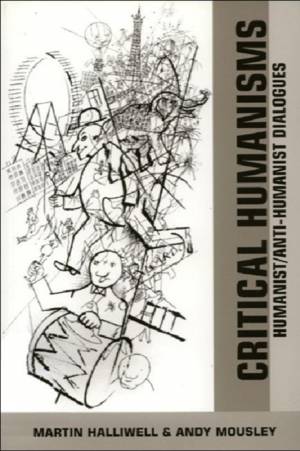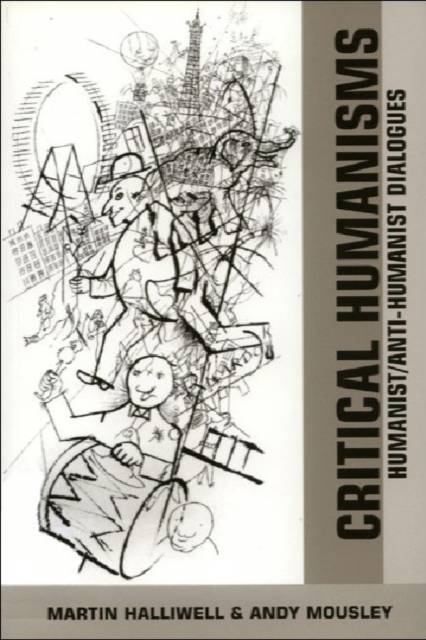
Bedankt voor het vertrouwen het afgelopen jaar! Om jou te bedanken bieden we GRATIS verzending (in België) aan op alles gedurende de hele maand januari.
- Afhalen na 1 uur in een winkel met voorraad
- In januari gratis thuislevering in België
- Ruim aanbod met 7 miljoen producten
Bedankt voor het vertrouwen het afgelopen jaar! Om jou te bedanken bieden we GRATIS verzending (in België) aan op alles gedurende de hele maand januari.
- Afhalen na 1 uur in een winkel met voorraad
- In januari gratis thuislevering in België
- Ruim aanbod met 7 miljoen producten
Zoeken
Critical Humanisms
Humanist/Anti-Humanist Dialogues
Martin Halliwell, Andrew Mousley
Hardcover | Engels
€ 298,45
+ 596 punten
Uitvoering
Omschrijving
This distinctive reappraisal of humanism argues that humanist thought is a diverse tradition which cannot be reduced to current conceptions of it. By considering humanism via the categories of Romantic, Existential, Dialogic, Civic, Spiritual, Pagan, Pragmatic and Technological Humanisms, Halliwell and Mousley propose that the critical edge of humanist thought can be rescued from its popular view as intellectually redundant. They also argue that because these humanisms contain within them anti-humanist perspectives, it is possible to counter the charge that humanism is based upon an unquestioned image of human nature. The book focuses on the thought of twenty-four mainly European and North American thinkers, ranging historically from the Renaissance to postmodernism. It discusses foundational writers (some of whom have been claimed as anti-humanists) such as Marx, Nietzsche, Freud, Dewey and Sartre as well as the contemporary thinkers Habermas, Cixous, Rorty, Hall and Haraway, to construct a series of provocative dialogues which suggest the ongoing relevance of humanism to issues of ethics, art, science, selfhood, gender, citizenship and religion. Given the range and originality of the book's approach, Critical Humanisms will be an invaluable resource for students and researchers in the Humanities, particularly English, American studies, cultural studies, modern languages, philosophy and sociology.
Specificaties
Betrokkenen
- Auteur(s):
- Uitgeverij:
Inhoud
- Aantal bladzijden:
- 240
- Taal:
- Engels
Eigenschappen
- Productcode (EAN):
- 9780748615049
- Verschijningsdatum:
- 11/09/2003
- Uitvoering:
- Hardcover
- Formaat:
- Genaaid
- Afmetingen:
- 156 mm x 234 mm
- Gewicht:
- 517 g

Alleen bij Standaard Boekhandel
+ 596 punten op je klantenkaart van Standaard Boekhandel
Beoordelingen
We publiceren alleen reviews die voldoen aan de voorwaarden voor reviews. Bekijk onze voorwaarden voor reviews.









